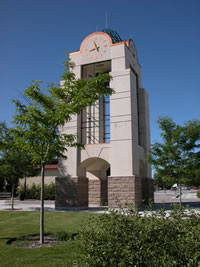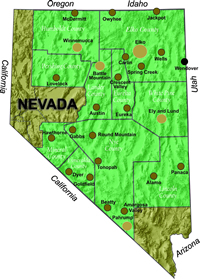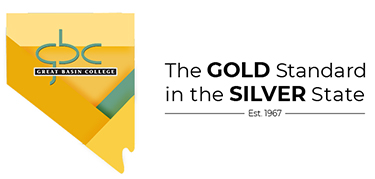ABOUT GBC

Welcome to Great Basin College!
Great Basin College values you! Valuing what we have in common and our differences means we will foster a college climate of mutual trust, tolerance, informed discourse and always seek to promote GBC as a "safe space" to explore new ideas and perspectives with opportunities for you to grow, learn and be successful in a friendly, supportive campus environment. GBC enriches people's lives by providing student-centered, post-secondary education to rural Nevada. GBC students enjoy outstanding academic programs, smaller class sizes, and excellent faculty who really care about our students. We are GBC!
ADMISSIONS

ACADEMICS

For High School Students
STUDENT SERVICES

As part of Great Basin College's mission of transforming lives through education, GBC offers hundreds of online classes and several certificate and degree programs. See our current catalog for more information.
COMMUNITY

Great Basin College wants to be your choice for higher education. GBC offers associate and baccalaureate level instruction in career and technical education and academic areas. About 4,000 students are enrolled annually online from across the country and on campuses and centers across 86,500 square miles, two time zones, and ten of Nevada's largest counties. We border Arizona, Oregon, Idaho, Utah, and California. We are GBC!
INFORMATION

Need to find COVID-19 information quick? Check out our Coronavirus (COVID-19) Information and Resources page!
STUDENT SERVICES AT A DISTANCE
Students studying remotely can avail themselves of:
- Live tutoring at rural GBC Centers.
- Remote tutoring through the Academic Success Center via e-mail or SKYPE.
- Placement testing at rural GBC Centers.
- Proctored testing for GBC classes rural GBC Centers.
- Computing help by phone or e-mail from the GBC Helpdesk.

Is Online Learning for Me?
If you answer "yes" to the questions below, then distance education is for you!
Do I have a compelling reason to complete an online course or program?
Compelling reasons could include:
- I can't fit a traditional college course into my schedule
- My work schedule changes, sometimes every week
- I don't live close enough to a campus to attend in-person classes
Be honest - am I self-disciplined enough to set my own study schedule and get course work completed on time?
Self discipline is critical for success in an online learning environment. Procrastinating will not be your friend when it comes to completing course assignments and meeting deadlines.
Am I an active learner?
Active learners take responsibility for their learning, get involved in their studies and actively participate regularly (as in, several times every week) in their classes.
Do I like working alone?
Some people simply don't like to work alone, preferring the social interaction of an in-person class.
Am I ready to spend four to seven hours a week every week per credit hour?
Are you realistic about the demands of online learning? While you will not spend time commuting to class, you may spend more time doing class work than if you were in an in-person class. Plan for a minimum of four to seven hours a week for each credit hour of the course.
Am I comfortable working with written instructions and interaction?
Most interactions in online classes are by computer, with fellow students and with your instructor.
Am I good with mostly electronic interactions?
Online courses require discussions and/or group projects that are managed online through WebCampus/Canvas. Unless the course includes regularly scheduled Zoom Meets, students usually don't have to be online at a specific time. You'll need to check with your instructor for specific information about scheduled activities.
Am I willing to reach out to my instructor if I have a question or problem?
Online students must take ownership to contact their instructor when they have a question or issue about classwork. Are you able to take the initiative to contact your instructor via WebCampus, email, or phone if you have a question or a problem?
Am I patient enough to wait for feedback?
Unlike a traditional classroom where you can raise your hand and get immediate feedback, in online learning feedback will take at least several hours and may take a few days, depending on your instructor's schedule. Checking with your instructor and the course syllabus when the course starts can help you get an idea of when you can expect to receive feedback.
Do I have the patience for electronic glitches?
As we all know, technology can have its problems. Do you get flustered and ready to quit when things go wrong? Your answer to this question can tell you if online learning is a good fit for you.
For More Information Contact
Great Basin College
Yvonne Naungayan
Instructional Designer
Phone: (775) 327-2186
E-mail: yvonne.naungayan@gbcnv.edu
Why Great Basin College
Great Basin College offers associate and baccalaureate level education in academic, career and technical fields. Welcoming students from all corners of the country, both online and at our various campuses and centers, GBC's presence extends across two time zones and spans more than 86,000 square miles throughout Nevada. A leader in rural higher education, GBC takes pride in developing students who are well-prepared to meet the demands of industry and who contribute to the success and prosperity of the local economy.




